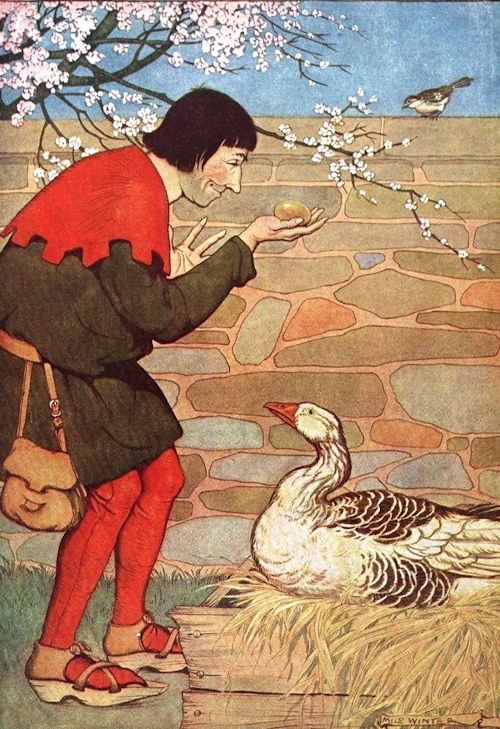The Goose That Laid The Golden Eggs
Illustrates Over-Optimization, Short-Term Thinking, Protecting Team Health
One of the biggest traps Agile organizations fall into is trying to extract results faster than the system can support. Leaders want immediate return. Teams feel the pressure to over-deliver. But in doing so, they risk damaging the very capabilities that make future success possible. This classic Aesop fable1 reveals a timeless truth about how short-term thinking can sabotage long-term potential.

Once there was a farmer who discovered that one of his geese laid a golden egg every day. At first, he could not believe his luck. He sold each egg for a great sum and quickly grew wealthy.
But over time, the farmer grew impatient. One golden egg a day no longer felt like enough. He started calculating how much money the goose was holding back by only producing one egg at a time.
Driven by greed, he decided to cut the goose open and take all the golden eggs at once.
But when he did, he found nothing. No treasure inside. And he had destroyed the goose.
His source of wealth was gone forever.
Lessons Learned
Value Comes From Capability, Not Speed
The farmer mistook output for potential. Many organizations do the same when they prioritize short-term delivery over long-term team health. The golden eggs came because the goose was healthy. Product delivery flows from well-supported, focused teams. Undermine the system and you lose the value.
Unsustainable Pressure Kills Flow
The moment the farmer got greedy, he broke the system. Pushing teams to deliver faster with less rest or reflection might yield short-term gains. But burnout, quality issues, and morale drops soon follow. Sustainable pace is not just humane, it protects the flow of value.
Optimize for the System, Not the Artifact
The golden egg was a product, but the goose was the system. Agile thinking teaches us to focus on the whole: team dynamics, workflow design, and customer feedback loops. Delivering value consistently requires a system that is nurtured and improved, not squeezed dry.
Trust in Incremental Value
One egg a day may seem slow. But over time, it created wealth. Agile teams that focus on small, regular deliveries and learn from each outperform those who chase big releases full of assumptions. Patience with process leads to better outcomes.
Exploiting Output Destroys Trust
Teams feel it when leadership treats them like machines. The push for more, faster, cheaper often erodes psychological safety and collaboration. Like the goose, they may stop producing. Or worse, leave entirely.
Coaching Tips
- Use this Parable During Planning Discussions: When leadership demands faster delivery, it can start a conversation about capacity, sustainability, and system health.
- Bring it Into Retrospectives When Burnout is Present: Ask the team, "Are we protecting the goose or chasing the eggs?" Let that guide reflection.
- Reframe Conversations About Metrics: Help stakeholders understand that high velocity without team well-being may signal collapse, not success.
Agility is not about pushing harder. It is about supporting the systems that generate value over time. Just like the goose, your team needs care, focus, and trust. Otherwise, the pursuit of more may cost you everything.
If your organization wants more golden eggs, start by taking care of the goose.


